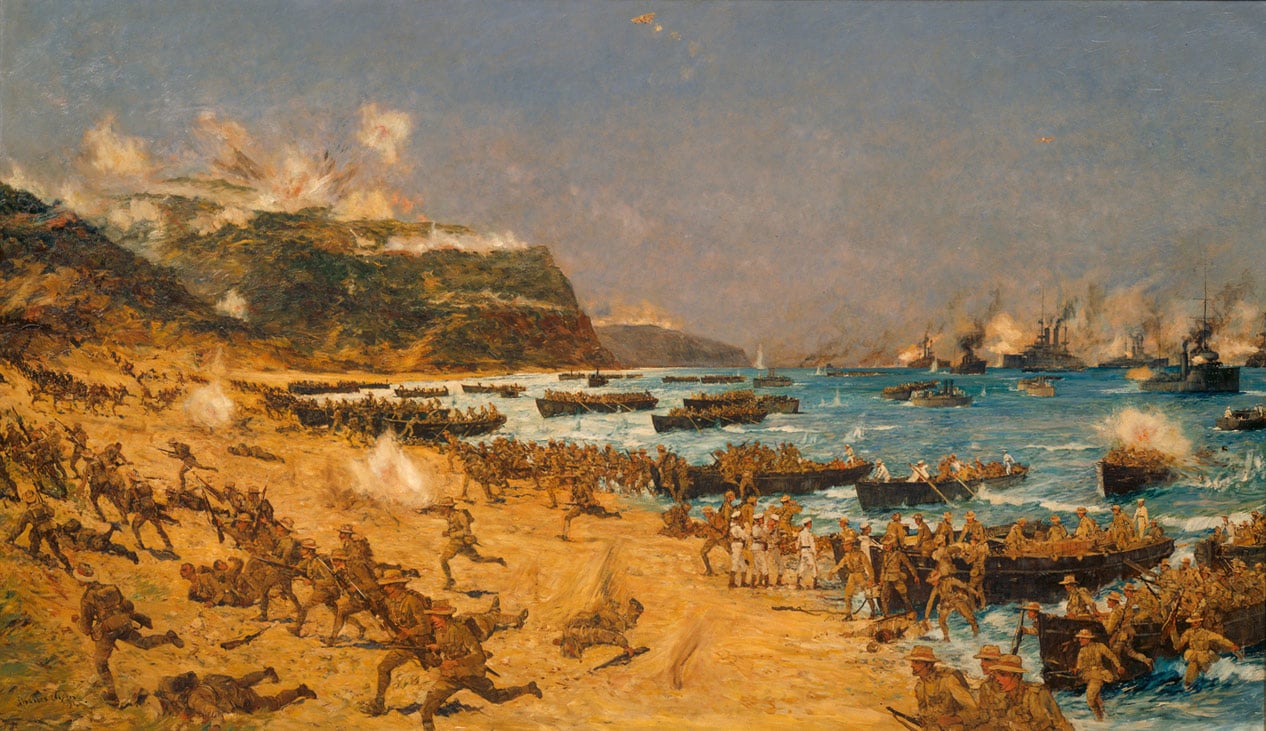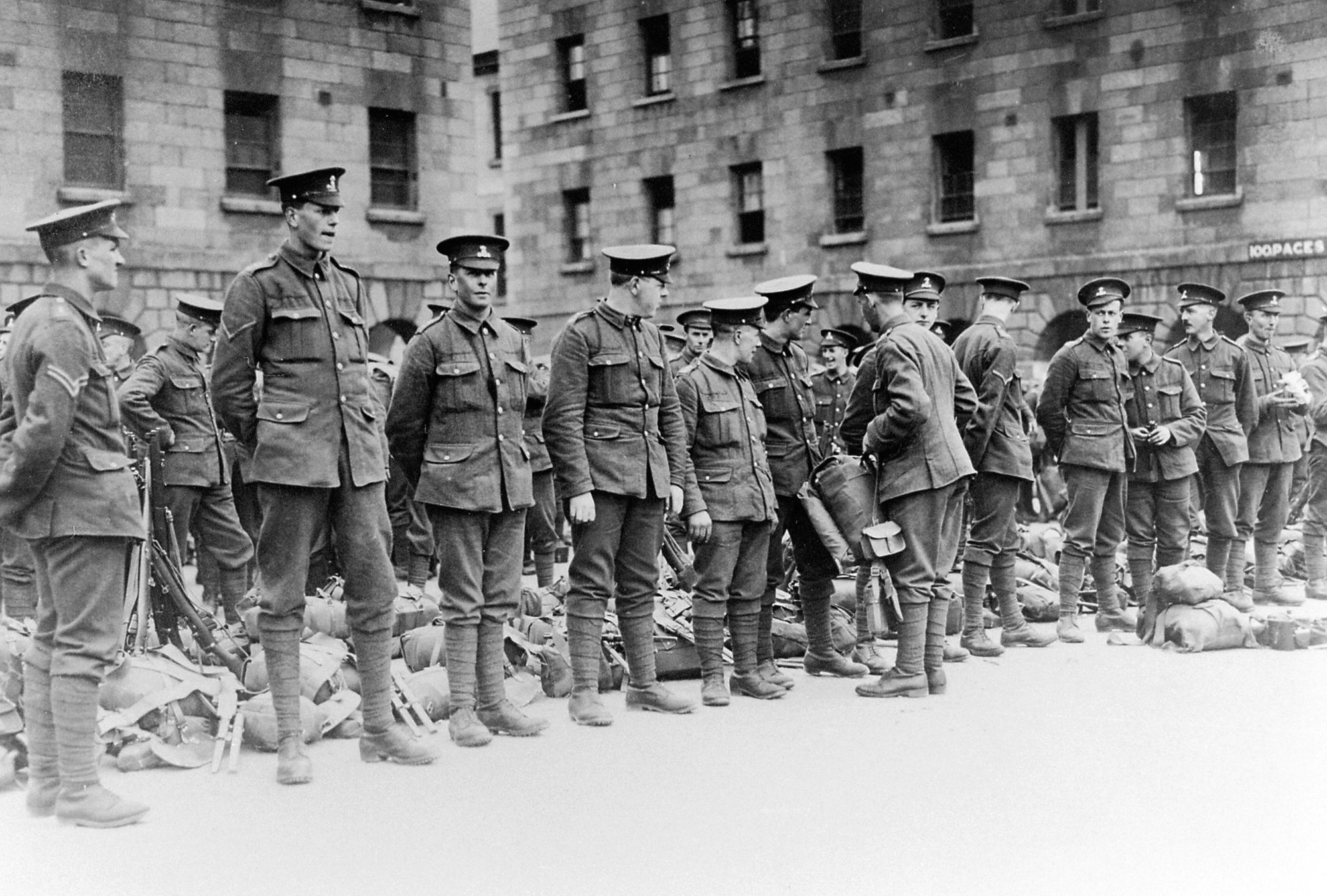Dubliners lead the charge at Suvla Bay as savage fighting continues
Irish Times defends Gallipoli campaign
Gallipoli, 28 August 1915 - News of Irish soldiers dying at Gallipoli comes now almost every day as fighting continues on the shores of Suvla Bay.
As the British army and its allies seek to take control of the Gallipoli peninsula, Irish soldiers have been prominent in the fighting. Men from the Royal Dublin Fusiliers fought for Chocolate Hill and followed that by leading a bayonet charge on Turkish troops along a strategically important ridge to the left of the bay.
Soldiers from Australia, Canada and New Zealand were also prominent in the attacks, but all met with fierce resistance from the Turks.
Victor Jefferson from Rathmines in Dublin, a member of D Company, 7th Battalion of the Royal Dublin Fusiliers, has sent the following account to his mother of his experiences on landing on the shores of Suvla Bay: ‘We were under very heavy shrapnel and rifle fire the whole day. Saturday’s fight was a very stiff one, and we were unlucky in having it the first day. However, I suppose it will prepare us for what is to come. Everyone is delighted with the way the regiment fought, and the General told us we might be proud of it. So far I have escaped unhurt, but have had some lucky escapes. Last Monday we had to bring ammunition up to the firing line, when one bullet struck my helmet, but nothing else.’

'The landing at Anzac, 1915' by Charles Dixon in oil. (Image: Archives New Zealand)
'The finest of all deaths in the finest of all causes'
Despite the mounting casualties, The Irish Times has defended the campaign in an emotional editorial:
‘Sometimes we may be tempted to ask: was it worth the while? Was it really necessary that this only son of his mother should fall to a Turkish bullet, that the career of that brilliant young barrister should end in a scuffle on a foreign sandhill?
We venture to say that even the bitterest loss in this campaign has been worth the while - worth it for the soldier himself, for his loved ones, for Ireland. The soldier has died the finest of all deaths in the finest of all causes. In his short life he has done a greater thing than any who survive him at home will ever do.
He has left to his family the consolation of a proud and tender memory. His death is a message of hope to his country. Of those who will never come home we can truly say, as the Spartans said of their dead at Thermoppylae, that their tombs are altars, their lot glorious and beautiful.'
The paper predicted that the fact that Catholic and Protestant had fought side by side against the Turks would ensure peace in Ireland after the war: ‘The Unionists and Nationalists who fought at Ypres and stormed the hill at Suvla have sealed a new bond of patriotism. The spirits of our dead soldiers will cry trumpet-tongued against the deep damnation of internecine strife in Ireland.‘
[Editor's note: This is an article from Century Ireland, a fortnightly online newspaper, written from the perspective of a journalist 100 years ago, based on news reports of the time.]





















